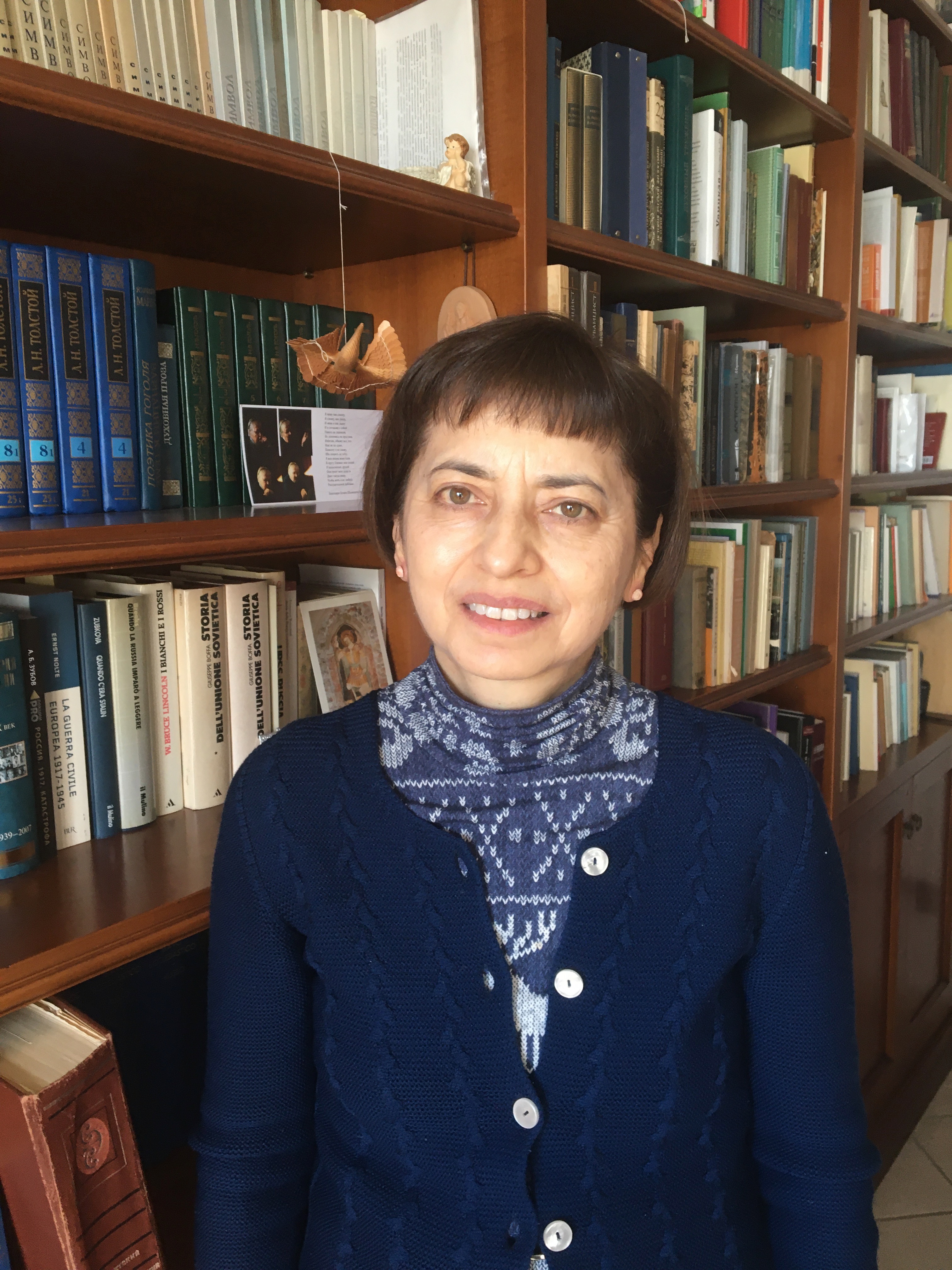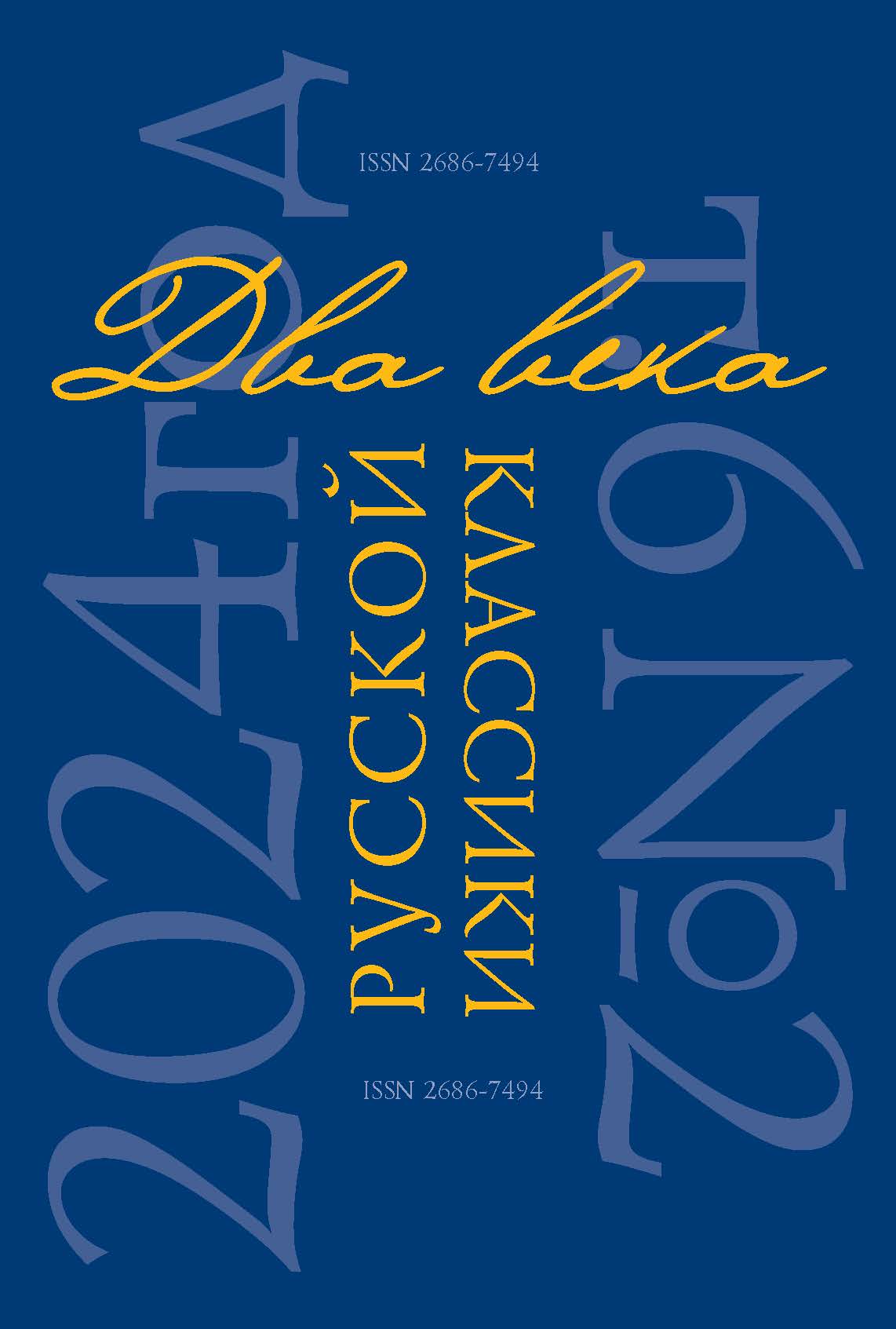
Associate Professor of Slavistics of School of Foreign Languages and Literatures, Department of Communication Studies, International Humanities, University of Carlo Bo, Via Santa Maria, Urbino, Italy
ORCID ID: https://orcid.org/0000-0002-5984-7439
E-mail: This email address is being protected from spambots. You need JavaScript enabled to view it.
Education and training, internships:
Graduated from the Faculty of Foreign Languages (Russian and German) at the University of Bologna in 1986.
Internship at Pushkin Institute in Moscow (February 1987 – June 1987).
Internship at Gorky Institute of World Literature of the Russian Academy of Sciences in Moscow. Subject: Leo Tolstoy and Ivan Kireyevsky (July – August 1991).
Graduated from the Faculty of Oriental Studies at the Papal Oriental Institute in Rome in 1995.
Internship at the Institute of General History of the Russian Academy of Sciences in Moscow. Research topic: “Early Slavophilism” (December 1997 – January 1997).
Internship at Gorky Institute of World Literature of the Russian Academy of Sciences in Moscow. Research topic: “Leo Tolstoy and the Slavophiles” (December 1999 – January 2000)
PhD thesis:
“One Church” by Aleksey Khomyakov. Critical edition of the manuscript OPI GIM, Fund 178, no. 17, ff 24–47 with translation and study on the genesis and sources of the work) (2002).
Academic degree and title, membership of scientific organisations:
Doctor of Eastern Church Studies, Associate Professor of Slavistics, member of Centre for Ecdotics and the Analysis of Literary Texts (CREAT) of the University of Carlo Bo, Urbino, Italy.
Scientific-organisational activities:
Member of the editorial board of Gorky IWL RAS scientific journal “Two Centuries of the Russian Classics”
Member of the editorial board of the journal “Language and Text”.
Selected scientific publications:
Monographs
- A. S. Chomjakov. Opinione di un Russo sugli stranieri (A Russian's opinion on foreigners), introductory article, translation and notes by Antonella Cavazza, Il Mulino-Alfa-Tape, Bologna, 1997, 338 p. (In Italian).
- “La Chiesa è un” di A. S. Chomjakov, edizione documentario-interpretativa (“The Church Is One” by Aleksey Khomyakov, documentary-interpretative edition), Il Mulino, Bologna, 2006, 366 p. (In Italian).
Web of Science / Scopus publications
- Diego Fabbri's drama “The Karamazov Trial or The Legend of the Grand Inquisitor. Three Hearings” and its reception in Italy in the first half of the 1960s. Studi Slavistici, no. X, 2013, pp. 175–190. DOI https://doi.org/10.13128/Studi_Slavis-14140 (In Italian)
- Life of St. Anthony as a possible source for the depiction of the forces of evil in “Demons” by Dostoevsky. The Problems of Historical Poetics, no. 14, 2016, pp. 196–219. DOI https://doi.org/10.15393/j9.art.2016.3681 (In Russ.)
- Lie and truth in the terms of evangelical verity (F. Dostoevsky's novel “The Demons”). The Problems of Historical Poetics, no. 4, 2017, pp. 59–75. DOI https://doi.org/10.15393/j9.art.2017.4582 (In Russ.)
- F.M. Dostoevsky and A. S. Khomyakov: comparison at a distance. The Problems of Historical Poetics, no. 4, 2019, pp. 123–148. DOI https://doi.org/10.15393/j9.art.2019.6282 (In Russ.).
- Semantics and function of the aphorism “win yourself and you will conquer the world” in the works of Fedor Dostoevsky. The Problems of Historical Poetics, no. 3, 2020, pp. 113–128. DOI https://doi.org/10.15393/j9.art.2020.8282 (In Russ.)
- Linguistic peculiarities and stylistic value of a philological revision: the new edition of Leo Tolstoy's early works. Linguae @ Rivista di lingue e culture moderne, vol. 2, no. 1, 2003, pp. 45–56. (In Italian)
- Russian influences in Diego Fabbri's comedy “To an Unknown God”. Linguae & Rivista di lingue e culture moderne, vol. 10, no. 2, 2011, pp. 51–63. (In Italian).
- The stylistic features of [The Church Is One] by Aleksey Khomyakov. Linguae & Rivista di lingue e culture moderne, vol. 16, no. 1, 2017, pp. 29–38. DOI https://doi.org/10.7358/ling-2017-001-cava (In Italian)
Articles
- Some notes on the idea of Russian culture in the late works of Fyodor Dostoevsky. In Russian literature in the Russian-Italian dialogue of the 21st century: textual criticism, poetics, translations, responsible eds. M. I. Shcherbakova, G. Genya. Moscow, IWL RAS Publ., pp. 230–250. (In Italian)
- The theme of death in the novel “Anna Karenina” by Leo Tolstoy (chapters 14 to 20, fifth act): philological notes. In From the history of text to the history of literature. Issue 2. Moscow, IWL RAS Publ., 2019, pp. 459–471. (In Russ.)
- The image of Mary of Egypt in the work of F. M. Dostoevsky. Two Centuries of the Russian Classics, vol. 1, no. 2, 2019, pp. 174–185. DOI https://doi.org/10.22455/2686-7494-2019-1-2-174-185 (In Russ.)
- The stylistic features of “The Church Is One” by Aleksey Khomyakov. Linguae & – Rivista di lingue e culture moderne, vol. 16, no. 1, 2017, pp. 29–38. DOI https://doi.org/10.7358/ling-2017-001-cava (In Italian)
- “The Church Is One” by Aleksey Khomyakov inside and outside the Russian borders (1864–1931). Studium, no. 4, 2018, pp. 571–584. (In Italian)
- The Church Is One] by Aleksey Khomyakov. Slavica Occitania, no. 41, 2015, pp. 177–189. (In Italian)
- Diego Fabbri's drama “The Karamazov Trial or The Legend of the Grand Inquisitor. Three Hearings” and its reception in Italy in the first half of the 1960s. Studi Slavistici, no. X, 2013, pp. 175–190. DOI https://doi.org/10.13128/Studi_Slavis-14140 (In Italian)
- Inner speech in the short story “Master and Man” by Leo Tolstoy's. In Yasnaya Polyana almanac. 2002, Tula, Yasnaya Polyana Publ., 2012, pp. 245–257. (In Italian)
- Russian influences in Diego Fabbri's comedy “To an Unknown God”. Linguae @ Rivista di lingue e culture moderne, vol. 10, no. 2, 2011, pp. 51–63. (In Italian)
- On the reception of the novel “Anna Karenina” by Leo Tolstoy in Italy (1886–1910). In Leo Tolstoy and of Leo Tolstoy. Moscow, IWL RAS Publ., 2009. Issue 3, pp. 317–332. (In Russ.)
Teaching activities:
Associate Professor of Slavistics of School of Foreign Languages and Literatures, Department of Communication Studies, International Humanities, University of Carlo Bo, Urbino, Italy









